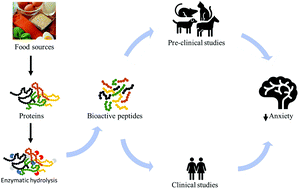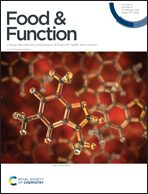Food protein-derived anxiolytic peptides: their potential role in anxiety management
Abstract
About one in three people are affected by anxiety disorders during their lifetime. Anxiety episodes can be brief due to a stressful event, but anxiety disorders can last at least 6 months. A wide variety of therapeutic drugs are available for the treatment of anxiety disorders, but due to the associated side effects of these anxiolytics, it is interesting to find alternatives. Some food protein hydrolysates or active peptide fragments present in such hydrolysates provide a natural and promising mean for preventing certain forms of anxiety. To date, only a small number of hydrolysates or peptides from food proteins with anxiolytic-like activity have been characterized. Most of these hydrolysates or peptides have displayed potent anxiolytic profiles in animal or clinical studies. The results suggest that these molecules may exert their effects at different levels. This paper reviews the data of the structure/activity relationship, physiological effects displayed in in vitro and in vivo assays, bioavailability, and safety profiles of anxiolytic peptides.



 Please wait while we load your content...
Please wait while we load your content...